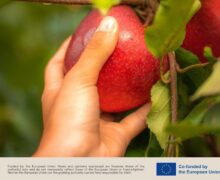Post-pandemic shopper behaviour research reveals self-purchases prevail over gifting

Photo: Unsplash
In both the Americas and Europe, the decline of gift shopping in travel retail has been more severe and has not yet revived.
Shoppers’ tendency to purchase gifts in travel retail has declined consistently and over the past 3 years, according to the latest research by travel retail research experts m1nd-set. The research analyses shopper behaviour when purchasing gifts, comparing the post-pandemic period, from 2021 to Q1 2023 with the pre-pandemic era, from 2017 until Q1 2020. While gift-purchasing has been on the decline, falling 13 points from 40% of shoppers purchasing gifts prior to the pandemic to 27% in Q1 2023, the research reveals that purchasing for self-consumption has seen an upturn, increasing from 46% pre-pandemic to 53% in Q1 this year.
The pace of the gift purchase demise varies depending on the shopper segment according to the research; in some cases, the tendency has begun to take a more positive turn. Shoppers in the Middle East and Africa and in Asia Pacific, reduced their gift-shopping behaviour after the pandemic in 2021 and 2022 but the trend has now reversed. Prior to the pandemic 38% of Middle East and Africa shoppers and 39% of Asia Pacific shoppers purchased items for gifting. The decline in the Middle East was more accentuated; gift-shopping in the region fell 11 points to 27% in 2022. In Q1 this year, however, the research demonstrates a rise in the percentage of shoppers from the region purchasing in travel retail for gifts, to 34%. In Asia Pacific, where gift shopping fell 8 points to 31% in 2022, the research shows an upward trend in this region, with 34% of Asia Pacific shoppers also purchasing for gifts in Q1 2023.
In both the Americas and Europe, the decline of gift shopping in travel retail has been more severe and has not yet revived. In the Americas, the percentage of shoppers purchasing gifts in travel retail has fallen 15% since the pre-pandemic period when 41% of shoppers in the Americas purchased gifts in travel retail, to 26% in Q1 2023. In Europe, the impact of the pandemic on gift shopping in travel retail has been the most severe with a 20% decline, from 40% pre-pandemic, between 2017 and Q1 2020, to 20% in Q1 this year.
The research also highlights the changes in gift shopping behaviour across demographic segments, looking at age, gender and travel type. According to m1nd-set, the strongest decline in gift shopping by age segment is among middle-aged shoppers. The Millennials segment is the only one that has yet to see a revival in the number of shoppers purchasing gifts. All other age segments have seen a reversal of the downward trend since the pandemic and an upturn since Q1 this year. As for gender segments, the research highlights a sharper decline in gift shopping among male shoppers than female shoppers, with an upward trend for male shoppers since Q1 2023. The downward trend has yet to be reversed for female shoppers. The sharpest decline among all segments is seen with Business travellers. 47% of business travellers shopped for gifts prior to the pandemic; this fell 27 points to only 20% in 2022, but has since picked up, with 27% of business travellers shopping for gifts in Q1 2023. Among leisure travellers, the downward trend that has yet to be reversed.
According to m1nd-set, the category which saw the steepest fall in gift-shopping is Toys. The category was the leading category for gift purchasing in travel retail prior to the pandemic, but experienced a 50% drop in purchases as gifts, falling from 80% pre-pandemic to 41% in 2021. This has since improved, with 68% of purchases of the category in Q1 2023 made for gifting. The second largest category for gifting, Souvenirs & Gifts, has nearly recovered having fallen from 73% to 59% in 2021; in Q1 2023, 69% of purchases in the category were made for gifting.
Confectionery – has experienced a significant loss in gift purchasing with less than half of the number of purchases made for gifting in Q1 2023, compared to before the pandemic. The research also highlights some categories that have seen an increase in the percentage of purchases made for gifting since the pandemic. Among the most significant is the Electronics
category where purchases made for gifting have more than doubled since the pre-pandemic period. Health food and Vitamins has seen exponential growth for gifting, increasing more than four-fold from the pre-pandemic period and Q1 2023 and Travel Accessory gifting purchases have doubled over the years since the pandemic, according to m1nd-set.
Peter Mohn, Owner and CEO of m1nd-set said a serious rethink is required to reposition duty free and travel retail as a source for ideal gifts “Consumer communications need to focus on reworking the message to capture shoppers’ attention with other more impactful and motivating incentives to drive them into the duty free stores. The role of gifting as a driver both to visit the duty free and travel retail shops and purchase in store, has declined significantly” Mohn said.
“Value for money, convenience, brand loyalty, price advantage and differentiation remain the key purchase drivers in travel retail today, he added. “Travel Retail needs to rethink its positioning around the gift-purchasing opportunities. The pandemic has brought about a shift towards altruism and greater attention to people and the planet. Consumers now tend to look how to give back more, and many new ideas for more meaningful long-distance gifting have emerged” Mohn concluded.
source: Travel Daily News




